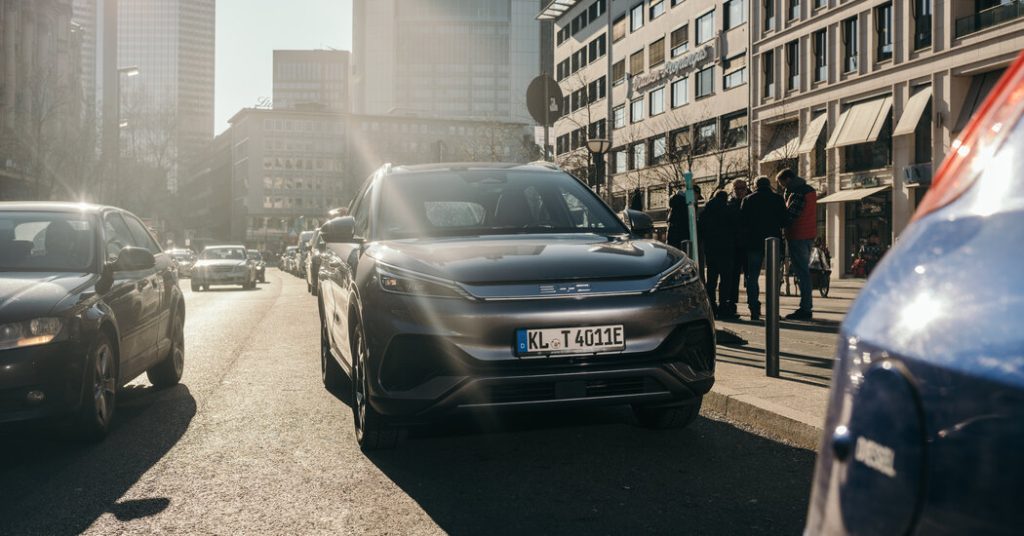The European Union has announced that it will impose tariffs of up to 38 percent on electric vehicles imported from China, in an effort to protect the region’s manufacturers from unfair competition. This move follows similar actions by the United States, indicating escalating trade tensions with China due to concerns about a glut of Chinese green tech goods flooding global markets. The European Union’s decision to increase duties has faced criticism from some European carmakers who fear retaliation from China, as well as potential price increases and a drop in demand for battery-powered cars.
The tariffs, which will take effect on July 4, range from 17.4 percent to 38.1 percent for leading Chinese manufacturers such as BYD, Geely, and SAIC. The decision was made based on an investigation to determine the level of support from the Chinese government for these companies. Other automakers producing electric vehicles in China, including European companies with factories or joint ventures there, face tariffs of 21 percent or 38.1 percent, depending on their cooperation with the investigation. The European Union justified its action by stating that the electric vehicle supply chain in China benefits heavily from unfair subsidies, posing a threat to E.U. industry.
The move by the European Union comes as a response to Chinese electric cars flooding the global market. The E.U. is the world’s second-largest market for electric vehicles after China, with imports of electric cars from China reaching $11.5 billion last year. Chinese brands account for 19 percent of the European market for electric vehicles, and their numbers have been steadily increasing. While the E.U. has left the door open for a possible agreement with Chinese authorities to resolve the issues identified, the potential imposition of higher tariffs on gas-powered cars imported from Europe remains a concern.
The increase in tariffs on electric vehicles imported from China has implications for European automakers deeply entrenched in the Chinese market. If Chinese automakers were to expand operations into Europe, European producers would need to enhance their competitiveness to remain viable. The threat of Chinese automakers already planning to build assembly plants in Europe has raised concerns among European automakers about the need to adapt to local competition. Chinese manufacturers like BYD and Chery have expressed intentions to expand production into Europe, potentially challenging European automakers in their home market.
Various European countries, such as France, are eager to attract Chinese automakers to their territories to create jobs and strengthen domestic supply chains. French President Emmanuel Macron and Finance Minister Bruno LeMaire have made efforts to encourage Chinese auto industry investment in France, especially in the production of batteries. However, European automakers are more focused on increasing their competitiveness in the face of potential competition from Chinese manufacturers setting up operations in Europe, rather than being overly concerned about short-term tariffs. The emphasis is on preparing for local competition and ensuring sustainability in the evolving electric vehicle market.


